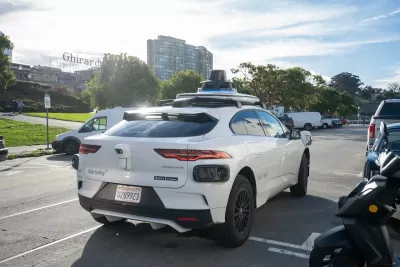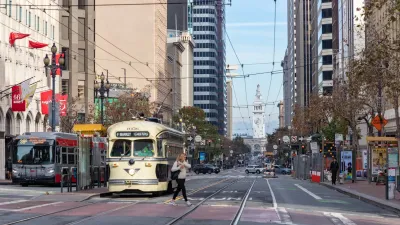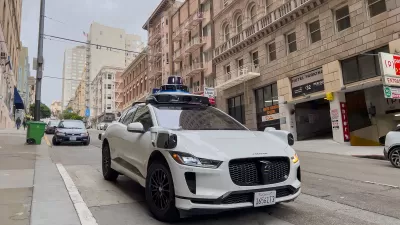Multiple sites slated for housing development are now being turned into charging and storage lots for autonomous vehicles, making housing an unintended victim of the robotaxi revolution.

The growth of autonomous taxis could be contributing to San Francisco’s housing crisis, according to an article by J.K. Dineen in the San Francisco Chronicle.
“From Jackson Square to the Mission to SoMa, some San Francisco property owners are trading in risky, but potentially lucrative, housing developments for the relatively easy money offered by the autonomous vehicle industry’s growing need for fleet charging lots.” Now, hundreds of proposed housing units are being nixed in favor of robotaxi charging lots.
Dineen points out that charging stations are themselves expensive and require a Planning Commission hearing. “For developers looking to make long-term income from AV fleet charging, that level of investment could be worthwhile. But it’s probably not attractive as a temporary use while a builder is waiting for interest rates and construction costs to come down to the level where housing works.” However, in a city where housing development can already be prohibitively expensive, AV charging lots, operated by multi-billion-dollar companies with deep pockets, could become a major competitor for urban real estate.
FULL STORY: Could robotaxis be yet another reason for S.F.’s lack of new housing?

Maui's Vacation Rental Debate Turns Ugly
Verbal attacks, misinformation campaigns and fistfights plague a high-stakes debate to convert thousands of vacation rentals into long-term housing.

Planetizen Federal Action Tracker
A weekly monitor of how Trump’s orders and actions are impacting planners and planning in America.

In Urban Planning, AI Prompting Could be the New Design Thinking
Creativity has long been key to great urban design. What if we see AI as our new creative partner?

King County Supportive Housing Program Offers Hope for Unhoused Residents
The county is taking a ‘Housing First’ approach that prioritizes getting people into housing, then offering wraparound supportive services.

Researchers Use AI to Get Clearer Picture of US Housing
Analysts are using artificial intelligence to supercharge their research by allowing them to comb through data faster. Though these AI tools can be error prone, they save time and housing researchers are optimistic about the future.

Making Shared Micromobility More Inclusive
Cities and shared mobility system operators can do more to include people with disabilities in planning and operations, per a new report.
Urban Design for Planners 1: Software Tools
This six-course series explores essential urban design concepts using open source software and equips planners with the tools they need to participate fully in the urban design process.
Planning for Universal Design
Learn the tools for implementing Universal Design in planning regulations.
planning NEXT
Appalachian Highlands Housing Partners
Mpact (founded as Rail~Volution)
City of Camden Redevelopment Agency
City of Astoria
City of Portland
City of Laramie





























